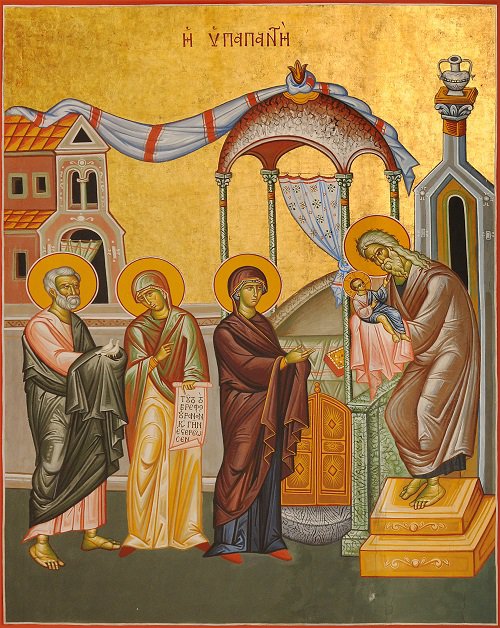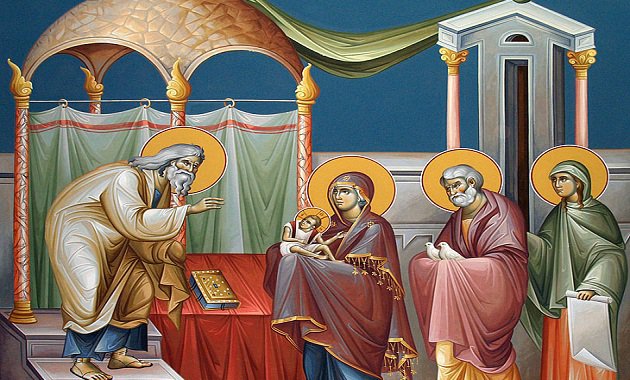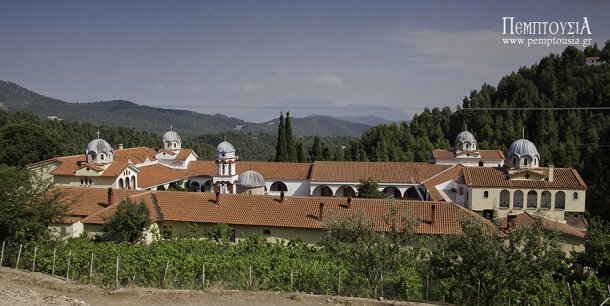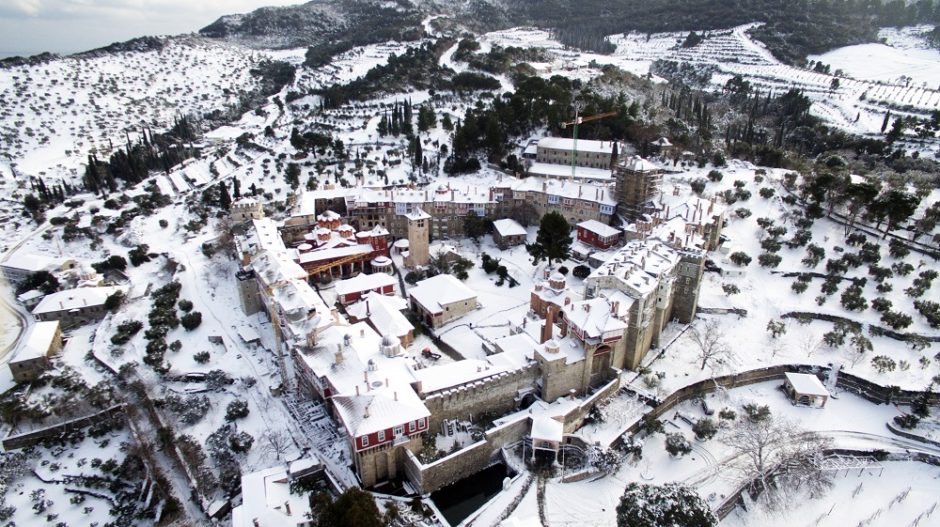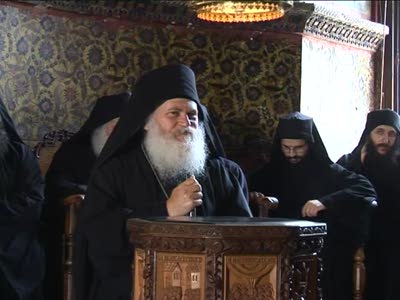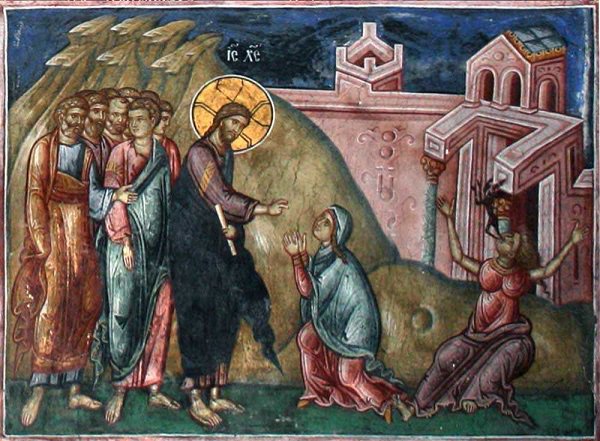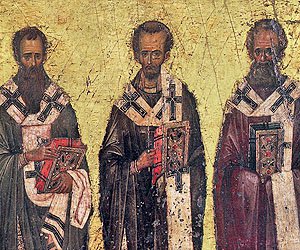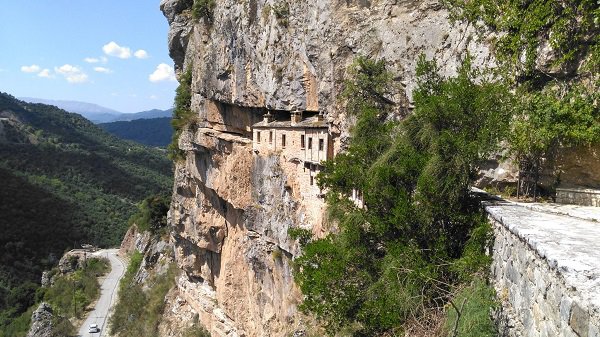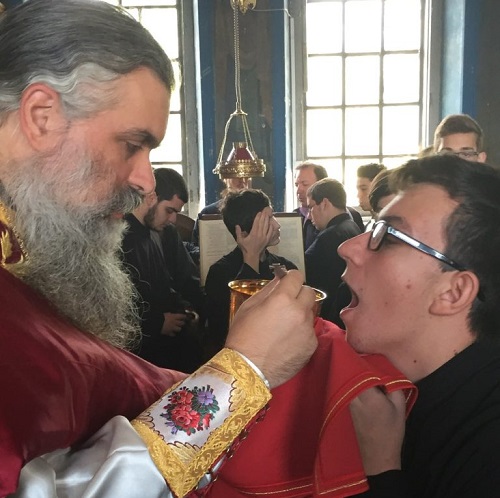
At this point, the curtain of the Royal Doors is usually closed, and preparations are made for the Holy Communion of the priests and the faithful. While this is happening, the Communion Hymn is sung, which is often verses from certain psalms, but may also be other hymns or extracts from the prayers of preparation for Holy Communion. First the priest communes from the ΙΣ portion of the Body, and then the Blood, three times. The priest then gives Communion to the deacon and the other priests, if present, make their Communion in the same way, having first put on their stoles. The priest then places the other portions of the Body in the Holy Chalice and carefully gathers the ‘pearls’ (the ...


